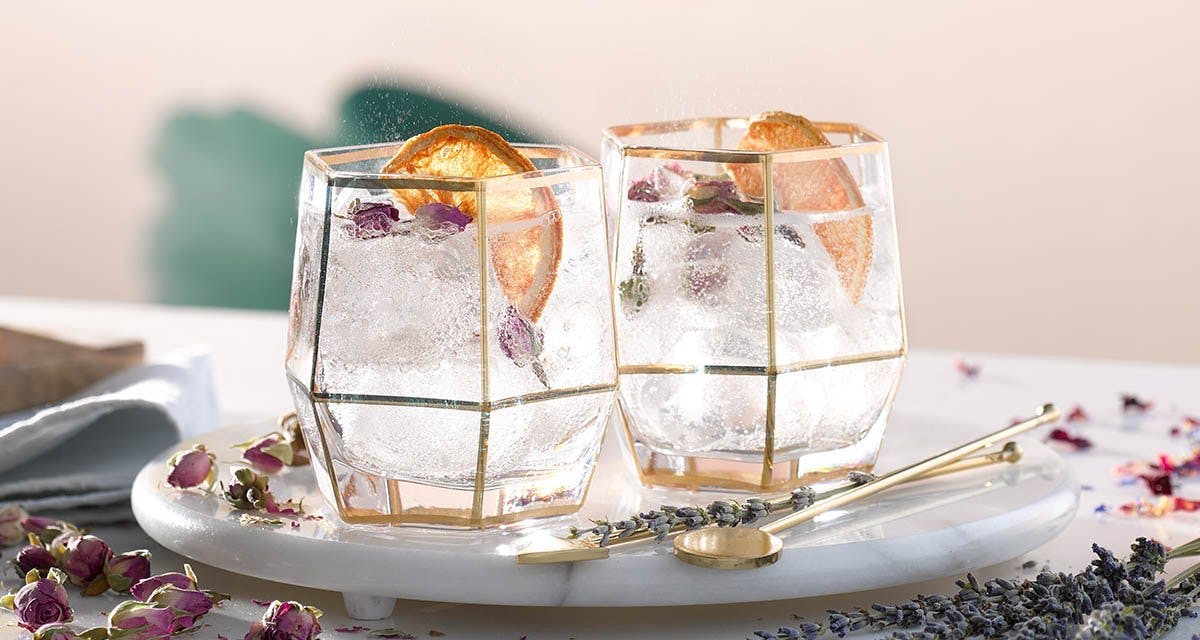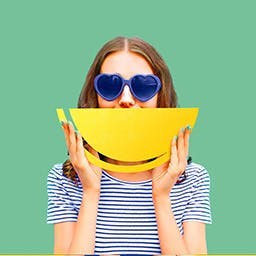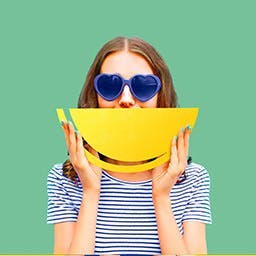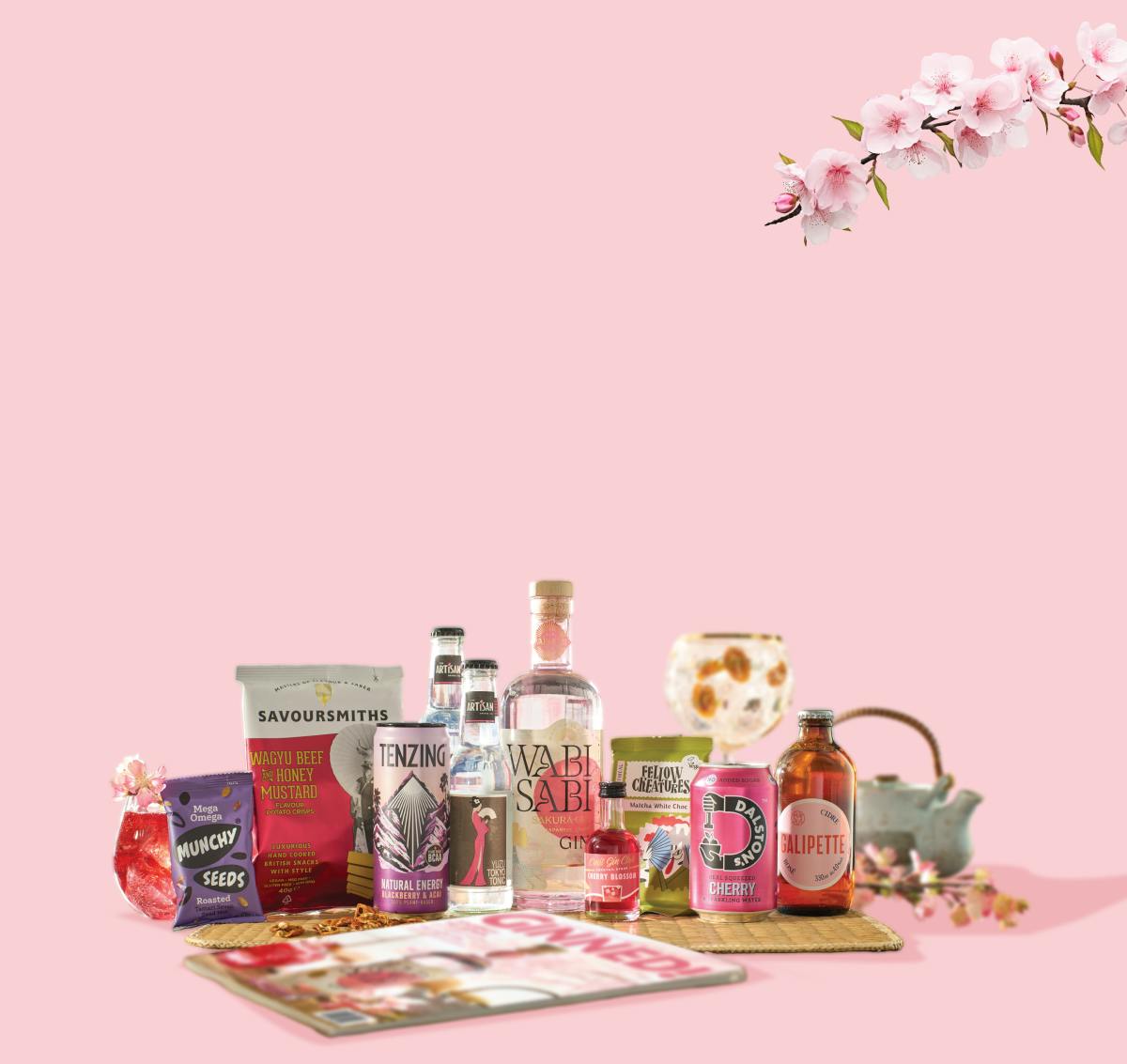Total flexibility, no commitment
A world of unique, crafted spirits
Easy, free and reliable delivery

Here's how many calories (and units) are really in your gin and tonic...
Here at Craft Gin Club, we all know how delicious gin tastes. These days, though, many of us are also (rightly) concerned about which drinks are the better option for your well-being. Of course, all drinking - even of our fabulous gin! - is absolutely a treat and needs to be consumed sensibly; sadly, truly healthy gin cocktails don’t exist! That said, we researched the science and have found a few solid reasons why gin could be the best choice for anyone who still fancies a tipple this January.
HOW MANY CALORIES ARE IN GIN?
Gin contains relatively few calories compared to other alcoholic (and some soft) drinks:
- Single measure of gin (25ml) with diet mixer = 54 calories
- Single measure of gin with mixer or fruit juice = 108 calories
- Medium glass (175ml) wine = 159 calories
- Small bottle (330ml) beer = 142 calories
- Pint of cider = 216 calories
- Single glass champagne (125ml) = 89 calories
Single measure of gin (25ml) with diet mixer = 54 calories
Single measure of gin with mixer or fruit juice = 108 calories
Medium glass (175ml) wine = 159 calories
Small bottle (330ml) beer = 142 calories
Pint of cider = 216 calories
Single glass champagne (125ml) = 89 calories
The evidence speaks for itself: so long as you make sure you are not accidentally doubling up on measures or going crazy on the sugary mixers*, a gin and tonic is a waistline-friendly option when you’re trying to stay trim!
*This is where the quality of the product comes into play. A high-quality craft gin won’t need lots of fake added flavours, as the botanicals in the gin will create all the taste you need!
Top tip: If you want to drink something more exciting than a gin and tonic but are keen to keep your calorie-count down, check out our list of top ten (relatively) low-calorie gin cocktails.
WILL GIN GIVE YOU A HANGOVER?
The bad news is, there’s no magic cure for a hangover - drinking too much booze is never going to result in you feeling great the next day! The slightly better news is, science has discovered that gin is one of the drinks least likely to give you a hangover.
Why? Well, the British Medical Association reported that something called congeners, which are found in greater quantities in dark drinks like red wine, beer and bourbon, are partly to blame for your feelings of nausea and general grossness after drinking. Clear drinks - including gin - contain fewer congeners and thus the symptoms of your hangover are likely to not be quite so severe.
What’s more, with less of a hangover, you’ll have less of a raging need for burgers/Chinese takeaway/an entire packet of doughnuts, which can only be a win for your struggling body!
HOW MANY ALCOHOL UNITS ARE IN GIN?
Speaking of hangovers, it’s important to know how strong the alcohol in your drink is. Here’s what the DrinkAware website told us:
- Single measure of gin with mixer = 0.9 units
- Medium glass of wine (175ml) = 2.3 units
- Small bottle of beer (330ml) = 1.6 units
- Pint of cider = 2.6 units
- Single glass champagne (125ml) = 1.5 units
Single measure of gin with mixer = 0.9 units
Medium glass of wine (175ml) = 2.3 units
Small bottle of beer (330ml) = 1.6 units
Pint of cider = 2.6 units
Single glass champagne (125ml) = 1.5 units
The NHS recommends drinking a maximum of 14 units of alcohol per week (women and men), so opting to drink gin does make it easier to stick within those limits while still enjoying yourself (just make sure you’re not doubling up on the pours)!
DOES GIN & TONIC HAVE ANY ADDED HEALTH BENEFITS?
There’s not much in the way of strong scientific evidence about the health benefits of gin, but many anecdotal reports have suggested that the natural botanicals in gin are full of health-stimulating properties, including anti-oxidants, digestive facilitators, vitamins and cancer fighters.
Pop in a few extra bits of raw fresh fruit or juice - lemon, lime or blueberries, for example - and you’re adding a tiny boost of extra Vitamin C and anti-oxidants to your diet. Hey, every little counts, right?!
In conclusion: a gin and tonic is lower in calories than other alcoholic drinks, contains fewer units of alcohol, is less likely to cause you a bad hangover than other booze, and has some potential small side benefits in the form of its natural botanicals and added fruit garnishes.
While it may not be actively good for your health, gin seems like a pretty fantastic option compared to most other alcoholic drinks when you do want to let your hair down a little bit!
Play safe, everyone, and have fun!













